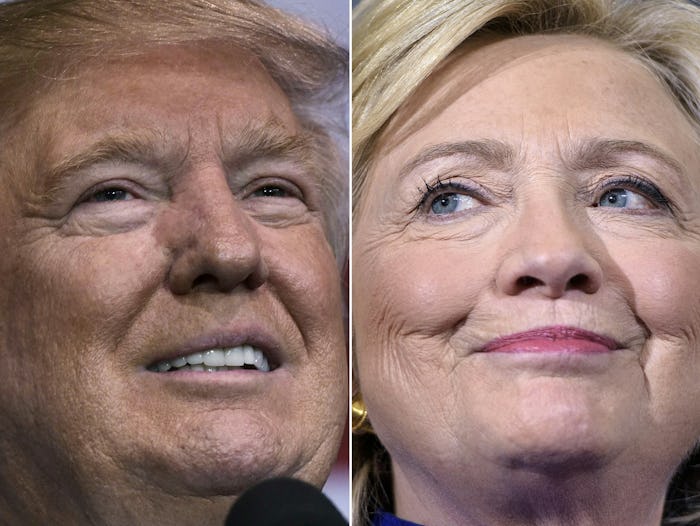News

Did Faithless Electors' Votes Count? Some Were Rejected
There's undoubtedly been a whirlwind of news since President-elect Donald Trump's election victory last month. Whether it's Trump's appointments to his Cabinet, or news of a potential elector revolt, election news continues to be pressing. And since Monday was the day electors cast their votes, many were closely watching to see what would come of efforts to embolden faithless electors. So, did the faithless electors' votes count? Apparently some were rejected.
There were, of course, many efforts, notably from anti-Trump forces, to encourage electors to vote against Trump on Monday. Why? Quick numbers recap: Trump won the election with 306 of the electoral votes, compared to former Secretary of State Hillary Clinton's 232. Since the candidate with the majority of electoral votes, 270, is declared the winner, many who opposed Trump put forth effort to urge the electors slated to vote in accordance to the states in which Trump won the majority vote, to vote against the president-elect instead. The goal was to ensure Trump got less than 270 of the electoral votes. In the end, the president-elect managed to take the victory anyway.
But with video pleas featuring various celebrities, numbers of online petitions, and scores of e-mails and messages sent directly to electors themselves making headlines, information about the apparent faithless electors and the outcome of their protest seemingly got lost in the mix. Harvard University law professor Larry Lessig revealed his assessment last week that some 30 Republican electors were willing to vote against Trump. But ongoing reports on Monday afternoon showed that a revolt against Trump would not be likely, and in the end, largely made no difference.
So, what was the outcome for voters who do decide to go rogue?
According to a report by The Huffington Post, some faithless electors were unable to cast votes against their party's presidential ticket because of requirements in their respective states. As explained by the National Archives and Records Administration, some states "... require electors to cast their votes according to the popular vote. These pledges fall into two categories — electors bound by state law and those bound by pledges to political parties..."
Specifically, as The Huffington Post cited, Maine elector voter David Bright decided to cast his vote for Sen. Bernie Sanders instead of Clinton. In a statement published on Facebook, Bright explained that his decision to vote for Sanders instead of Clinton was not "out of spite":
...I cast my vote for Bernie Sanders not out of spite, or malice, or anger, or as an act of civil disobedience. I mean no disrespect to our nominee. I cast my vote to represent thousands of Democratic Maine voters – many less than a third my age – who came into Maine politics for the first time this year because of Bernie Sanders. They organized, telephoned and sent in their 27 dollars. Many stood in line for hours in order to navigate our byzantine system of caucuses and convention this Spring so they could be among the two thirds of Maine Democrats who cast a vote for Sanders.
But according to Maine's Portland Press Herald, Bright's vote was ruled out of order since Clinton won the Democratic party's nomination. Bright then reportedly switched his vote to Clinton instead.
Additionally, in Colorado, an elector was reportedly replaced when they refused to cast a vote for Clinton, local Fox 31 Denver reported. Eventually, all nine votes were later reportedly cast for Clinton once the elector was replaced.
But some faithless elector votes have been recorded as of Monday afternoon. According to the Los Angeles Times, four of the 12 members of the electoral college in Washington state went rogue, and cast a vote for someone other than Clinton – who won the state's popular vote. On Dec. 5, a Republican elector in Texas wrote an opinion piece in The New York Times explaining why he planned to vote against Trump on Monday.
The presidential election, and preparation for inauguration, continues to be eventful to say the least.